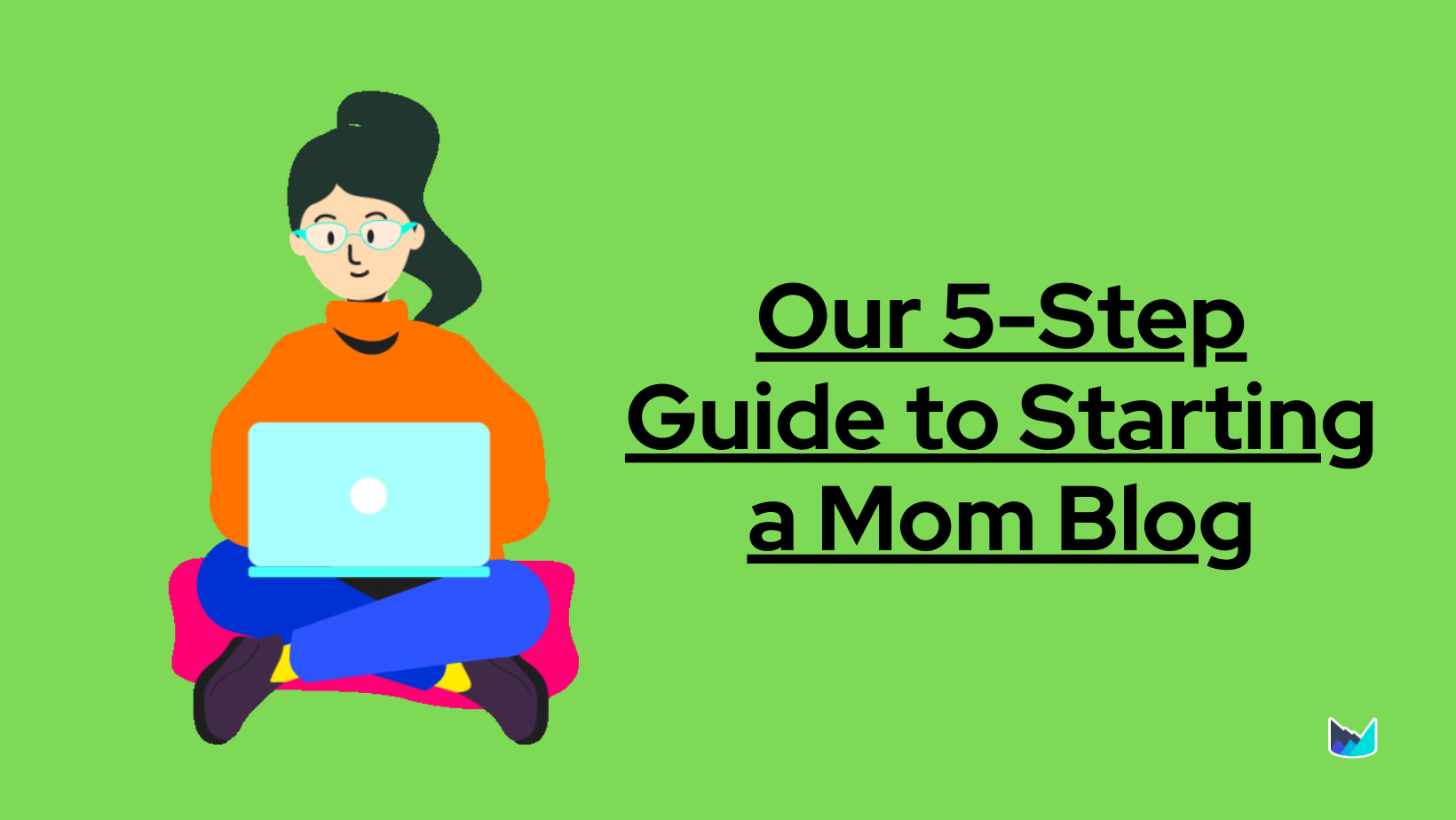- Product
- SEO Content Editor
- SEO Content Strategy
- Content Optimization
- Content Briefs
- AI Assisted Writing
- Keywords Clustering
Preview a demo walkthrough
Outranking the competition with our cutting-edge SEO strategies.
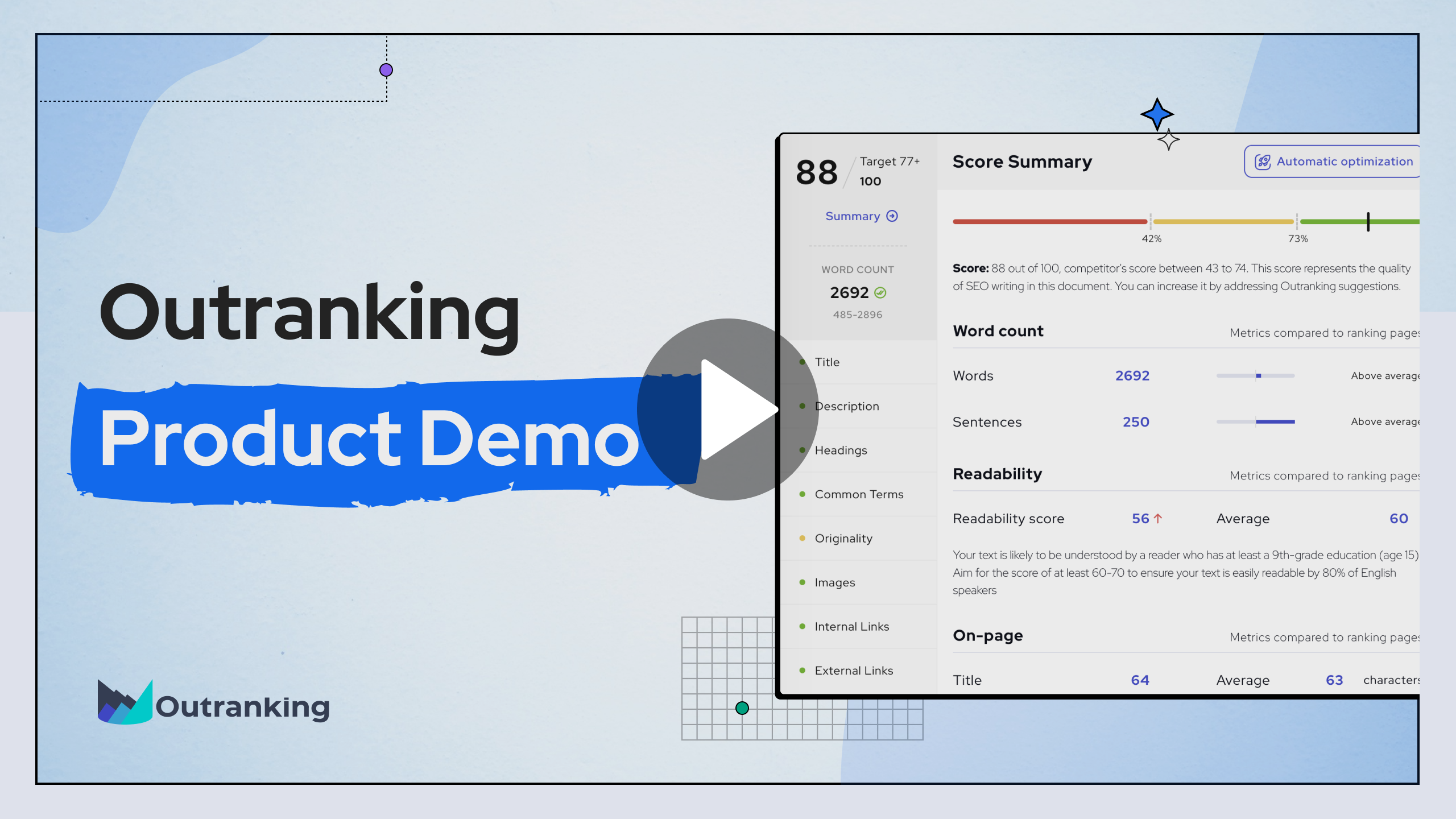
- Pricing
- Resources
- Sign In
- Get Started
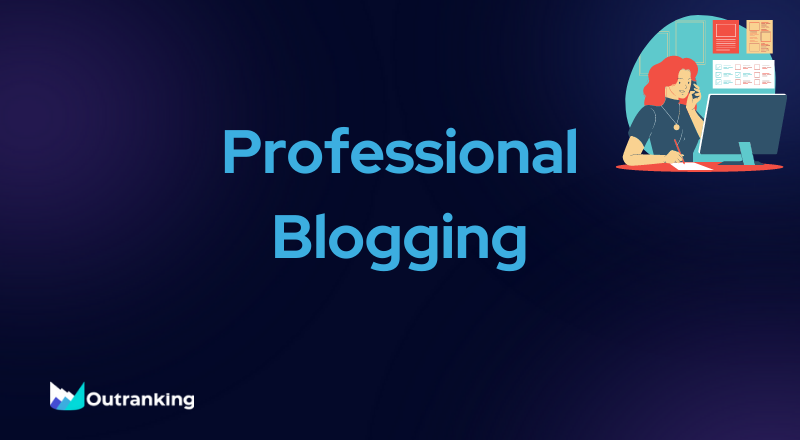
Professional Blogging: The Basics of Blogging As A Profession
Table of Contents
A lot of people ask questions about why they should start blogging or what it takes to become a successful blog owner. This post will answer those questions by providing some basic information on how the world’s best bloggers operate and create their blogs.
Table of Contents
What is professional blogging?
Professional blogging is the process of creating and publishing high-quality content on a blog with the goal of attracting and engaging a large audience. Professional bloggers are typically paid to blog on behalf of a company or individual, and they often have a team of writers and editors who help them create content.
There are two types of bloggers in the world: hobbyists and professional bloggers. Professional bloggers have high-traffic blogs that make a living from blogging, while hobbyists may or may not be able to make money off their blogs. But, generally speaking, hobbyists blog for fun and professionals blog for profit.
Professional blogging is a term that refers to blogging with the intention of earning an income. This could be through advertisements, sponsorships, affiliate marketing, or selling digital products or services.
It’s important to remember that professional blogging is not easy; weather you are a pet blogger, product reviewer, or a Saas website, it takes a lot of time and effort to create content that is both valuable and engaging for readers. In order to become a successful professional blogger, you need to be prepared to put in the hard work required.
What are the benefits of professional blogging?
Professional blogging can help you achieve a number of marketing goals, including:
– Establishing yourself as an expert in your field
– Driving website traffic
– Generating leads
– Building brand awareness
– Enhancing customer loyalty
– Increasing online sales
Additionally, professional bloggers often have better access to products and services, which they can then recommend to their readers.
What skills do you need to be a professional blogger?
Skills that are important for professional bloggers include research, writing, editing, and SEO. Additionally, social media skills are important as bloggers need to be able to promote their content on various channels. Graphic design skills are also beneficial as bloggers often need to create graphics to accompany their content.
Other important skills include confidence, proficiency, research ability, and networking skills. These are just a few of the many essential skills needed to be a professional blogger. Keep in mind that no one is perfect, and you will make mistakes along the way. But if you have the passion and determination to succeed, nothing can stop you!
Writing Skills and being good with words
This means being able to produce high-quality content on a regular basis that is both informative and engaging. You also need to be good with words, so you can craft catchy headlines and create titles that will make people want to read your articles.
Check out how you can speed up your content creation process with the AI blog post generator Outranking.io:
SEO Skills
This means being able to optimize your content for Google and other search engines, using the right keywords and tags, and crafting headlines that will catch people’s attention. You’ll also need to be familiar with basic online marketing techniques, such as creating effective email campaigns and driving traffic to your blog through social media channels.
But having a basic understanding of SEO and online marketing will definitely give you a leg up on the competition.
We often see that lack of SEO is the biggest roadblock to getting the content to rank. That’s why we built Outranking to help writers create content that outranks the competition without needing to study SEO from scratch. Check out this quick video showing you step by step of SEO optimization in AI SEO platform like Outranking.io and learn how to craft a remarkable SEO strategy:
Networking Skills
You need to be able to build relationships with other bloggers, as well as with brands and PR reps. You also need to be able to get your name out there and promote yourself. Networking can help you do all of those things.
One is by attending blogging conferences or meetups. Another is by joining blogging communities online or on social media. You can also reach out to other bloggers individually and start building relationships that way.
There are a number of ways to connect with them, including attending events where they will be present, reaching out online, and subscribing to industry newsletters. Networking with these groups can help you land sponsored posts, collaborations, and press trips.
By strengthening your connections with other bloggers, brands, and PR reps, you’ll be better positioned for success.
Content Marketing Skills
That means having a strong understanding of how to use keywords and other search engine optimization techniques to help your content rank higher on search engine results pages. Additionally, it’s helpful to understand basic HTML and CSS so that you can customize the look and feel of your blog posts and make them more appealing to readers. If you’re considering creating visuals or multimedia content, collaborating with an explainer video production company can also enhance the user experience on your blog. Finally, it’s important to be familiar with social media platforms like Facebook, Twitter, and LinkedIn so that you can promote your content widely.
How can you make money through professional blogging?
There are a variety of ways to make money through professional blogging. The three most common methods are writing content, recommending products, and selling products. Some side-hustles that may be worth considering are affiliate marketing, sponsored posts, and advertising. The most common way is to sell advertising space on your blog. You can also sell products and services through your blog, or offer consulting services. Or getting paid to speak at events or write for other publications.
Sell advertising
You can sell advertising on your blog to help offset the costs of running it. In order to sell advertising, you’ll need to generate traffic to your blog. The best way to do that is by publishing high-quality content that people will want to read. Once you’ve built up a following, you can start pitching potential advertisers and negotiating rates.
Sell digital products or services
The most common way is to sell products or services. If you have a blog about cooking, for example, you could sell cookbooks, kitchen supplies, or cooking classes. You could also offer consulting services related to your blog topic. Another option is to use your blog as a platform to promote your own products or services. For example, if you’re a web developer, you could create a blog about web development and use it to promote your own design and development services. Finally, you can earn money by advertising products or services on your blog.
Get paid to write articles
The first way is to find companies that are looking for writers. These companies will usually have a website or blog where they post articles on a regular basis. They will also have a contact form or email address where you can send your resume and writing samples.
There are many websites that allow you to sign up and offer your services as a freelance writer. These websites usually have a list of jobs that are available, and you can choose the ones that you want to apply for.
This can be a bit more difficult, but it can be very rewarding if you are able to build a large audience. You will need to come up with topics that people want to read about, and then create content that is interesting and informative. Once your blog starts gaining popularity, you may be able to start charging people for advertising space or for writing guest posts.
What are the common myths about professional blogging?
There are a few myths about professional blogging that need to be debunked.
Myth 1: Professional bloggers are born, not made.
Myth 2: Professional bloggers are only successful if they have a lot of traffic.
Myth 3: Professional bloggers are always online.
Myth 4: Professional bloggers are experts in everything.
Myth 5: Professional bloggers are always happy and positive.
There are many myths about professional blogging. Some people think that you have to be an expert on the topic you’re blogging about in order to be successful. Others believe that you need a large audience from the start in order to make money. And, finally, some people think that you have to blog every day in order to be successful.
In reality, none of these things are necessary for a successful blog. You can become an expert on your topic over time, and as your blog grows, so will your audience size. You don’t need to post every day in order to be successful; most bloggers post once or twice a week. And, finally, making money from blogging is completely possible – it just takes time and effort.
So, don’t let these myths hold you back from starting a blog! Just remember that success doesn’t happen overnight, and it takes hard work and dedication. But if you’re willing to put in the effort, you can achieve great things with your blog.
10 tips for successful professional blogging
1. Come up with new topics for brainstorming and news headlines to entice readership.
2. Find a niche market, find your target audience and get mindshare thereby producing content.
3. Content is king in the blogosphere, so be sure to create lots of it.
4. It is important to pick a theme – this will help you focus your efforts and make it easier for people to find your blog.
5. Nothing can be too vertical as long as the space you’re writing about is growing – in other words, there’s an audience for it out there somewhere!
6. It’s good to find a key area, but it takes time – don’t give up if things don’t happen overnight.
7. Also helpful: have “something unique” about yourself that makes you stand out from the rest of the pack.
8-9. Being able to switch between topics can be helpful, but try not to do it too often or too quickly because there will be people who are looking for a consistent voice and tone in their blogging – if they can’t find that on your blog, they’ll go elsewhere.
10. Finally, remember that consistency is key when it comes to blogging – post to your blog at least five times a week, and go “very deep” when covering a vertical.
Choose the right blog platform
When choosing a blog platform, you should consider the following factors:
-Ease of use: How easy is it to create and publish posts?
-Design flexibility: Can you change the appearance of your blog to match your brand or personal style?
-Community: Does the platform have a large community of users who can help you with tips and advice?
-Price: How much does the platform cost to use?
The most popular blog platforms include WordPress, Blogger, Tumblr, and Medium.
Create valuable and interesting content
This means thinking carefully about the topics you choose to write about and doing keyword research to make sure this topic has some demand, low competition, or ideally both. You can use Outranking.io to find those keywords:
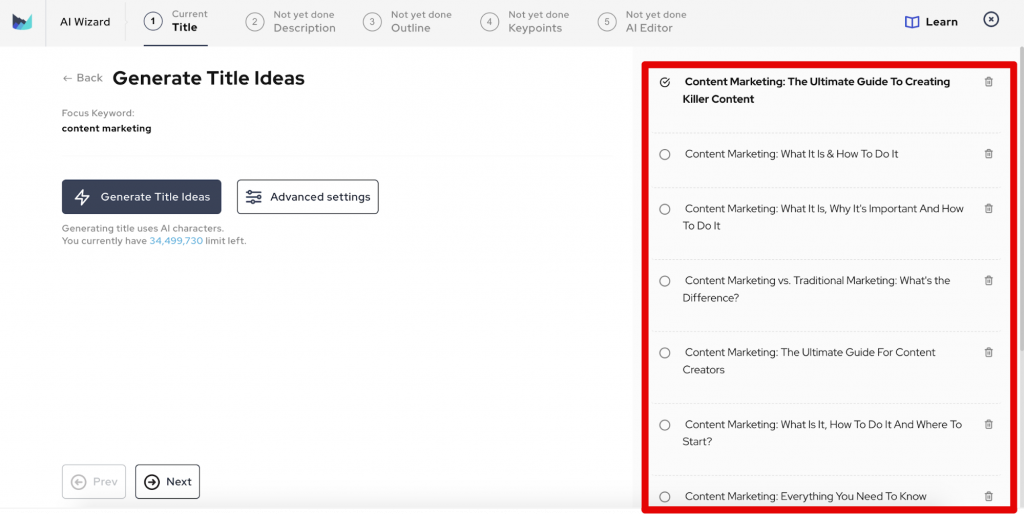
It may take some time before you start seeing significant traffic growth, but if you keep publishing high-quality content and promote it diligently, you will eventually see results.
Use social media to broaden your reach
With some effort, you can make your blog posts more widely accessible to more people.
Here are a few ideas to get you started:
Build a network of like-minded professionals
When you have people who are interested in what you’re writing and who can help spread the word, your blog will be much more successful. Here are a few tips for building that network:
- Connect with other bloggers in your niche.
- Attend blogging conferences and networking events.
- Follow other bloggers on social media and leave comments on their posts.
- Guest post on other blogs.
- Collaborate with other bloggers on joint projects.
- Subscribe to email newsletters and feeds from related blogs.
- Share others’ blog posts on social media or include them in roundups on your site.
- Write guest posts for other bloggers’ sites (and vice versa).
- Offer to speak at blogging events or lead workshops for other bloggers.
- Join a professional blogging association or community.
Get involved in online communities
By participating in discussions and sharing your thoughts and ideas, you’ll not only build relationships with other professionals, but you’ll also learn a great deal about what interests people in your industry. Additionally, you may be able to find guest blogging opportunities or even get tapped to write for popular blogs.
Connect with other bloggers
Find blogs that are in your niche or related to your industry, and add thoughtful comments. Don’t just post a comment saying “great post!” or “thanks for sharing!” Take the time to read the post and leave a comment that adds value.
When other bloggers see that you’re commenting on their posts, they’ll be more likely to check out your blog and potentially share your content. So don’t be afraid to start leaving comments!
Write guest posts for other blogs
But it’s not just about getting links. Guest posts can also help you improve your writing skills, learn new things, and build relationships with other bloggers.
Here are some tips for writing successful guest posts:
Find high-quality blogs to pitch
You don’t want to waste your time pitching blogs that won’t accept your submission or aren’t a good fit for your content.
Research the blog and its readers
Read past articles and take note of the topics that the blogger covers. This will help you determine if your content is a good fit for their blog.
Write a great headline
It’s what grabs people’s attention and encourages them to read more. Make sure it’s catchy and relevant to the topic of your article.
Use Outranking’s title generation tool:
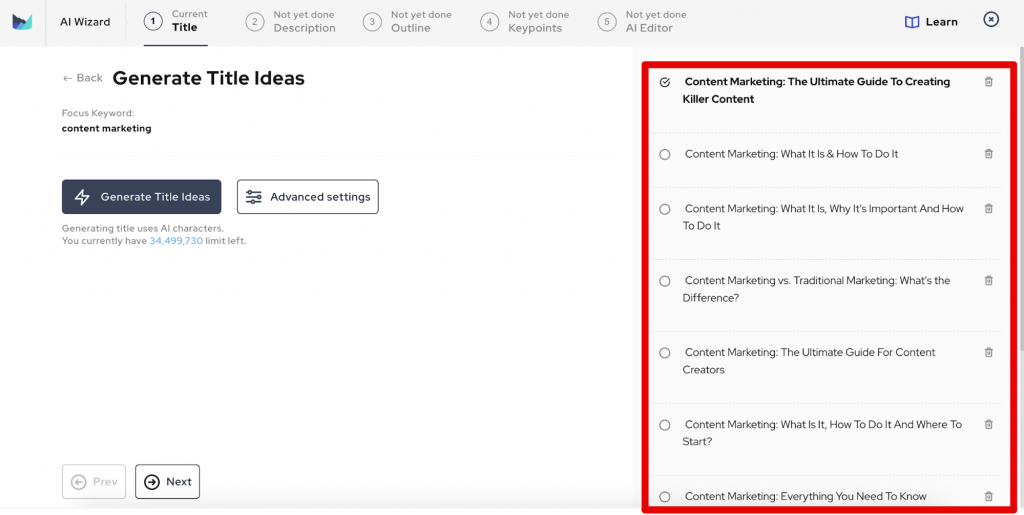
Write killer opening sentences
Your opening sentences are equally important because they’re what hooks people.
Here are 10 tips for writing successful guest posts:
- Do your research. Before you pitch a blog, make sure you’ve read through their past articles and know what kind of content they publish.
- Make sure your post is relevant. Don’t pitch a blog about cooking if you’re a technology blogger – that’s not going to interest their readership.
- Write something different. If everyone pitches the same idea to a blog, they’ll eventually stop accepting guest posts altogether. Be creative and offer them something new and interesting.
- Keep it short and sweet. Most blogs prefer posts that are around 500-800 words long, so keep that in mind when drafting your piece.
- Stick to the topic at hand. Don’t go off on tangents or ramble on about unrelated topics – stay focused on the main point of your post.
- Find blogs that are in the same niche as your blog.
- Read the guidelines for submission carefully.
- Include a bio and a link to your website or blog.
- Promote your guest post on social media websites like Twitter and Facebook.
- Republish your guest post on your own blog.
Invest in a tool like Outranking
Outranking is an online platform that helps content creators produce search-engine-optimized content and get more traffic from organic search results. Here are some tips on how to use the platform to improve your blog’s visibility and performance:
Keep learning and keep growing
If you want to be successful, you need to be constantly working on yourself and your blog. Here are some things you can do:
- Read other blogs in your niche.
- Follow top bloggers in your niche on Twitter and other social media platforms.
- Subscribe to email lists of top bloggers in your niche.
- Attend blogging conferences and workshops.
- Join online communities of bloggers in your niche.
- Write guest posts for popular blogs in your niche.
- Interview experts in your niche for your blog.
Professional blogging: what it is, who does it, and why you should do it
If you’re interested in starting your own blog and want to reach a large audience fast, professional blogging might be the right fit for you. By following our tips on how to start a professional blog and build an engaged community around it, you can connect with potential clients and evangelists while building a career as a freelance content writer.

